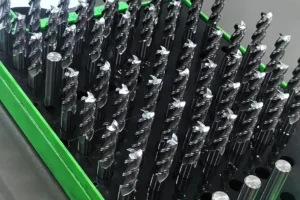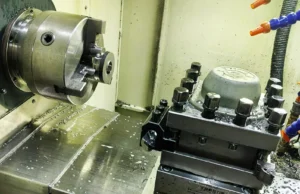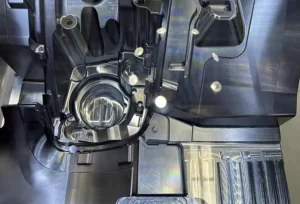
How many CNC machines are there in the world?
The World of CNC Machines: A Comprehensive Overview
Computer Numerical Control (CNC) machines have revolutionized the manufacturing industry, providing precise and efficient solutions for various production needs.
With advancements in technology, the number of CNC machines in the world has seen a significant increase.
Types of CNC Machines
Before delving into the numbers, let’s first discuss the different types of CNC machines that are commonly used in the manufacturing industry:
1. CNC Milling Machines: These machines are used to remove material from a workpiece by rotating a cutting tool. They are versatile and can perform a wide range of operations.
2. CNC Lathes: CNC lathes are used to machine cylindrical parts by rotating the workpiece against cutting tools. They are ideal for producing symmetrical parts.
3. CNC Routers: These machines are used for cutting, shaping, and engraving various materials such as wood, plastic, and metal. They are commonly used in the woodworking and sign-making industries.
4. CNC Plasma Cutters: CNC plasma cutters use a high-velocity jet of ionized gas to cut through electrically conductive materials such as steel, aluminum, and copper. They are commonly used in the metal fabrication industry.
5. CNC Laser Cutters: Laser cutters use a high-powered laser beam to cut through materials with precision. They are used in various industries, including automotive, aerospace, and jewelry.
Global Landscape of CNC Machines
Now, let’s turn our attention to the question of how many CNC machines exist in the world.
Unfortunately, pinpointing an exact number is a challenging task due to various factors, including the rapid pace of technological advancements and the diverse applications of CNC machines across industries.
However, we can provide some estimates to give you a sense of the scale of CNC machine usage globally.
According to a report by Research and Markets, the global CNC machine market size was valued at $70.9 billion in 2020 and is projected to reach $114.7 billion by 2028, growing at a CAGR of 6.7% during the forecast period.
This rapid growth indicates the widespread adoption of CNC machines across industries worldwide.
Various sectors—including automotive, aerospace, electronics, healthcare, and consumer goods—use CNC machines.
The need for high precision, repeatability, and efficiency in manufacturing processes drives the demand for CNC machines.
Impact of Industry 4.0 on CNC Machines
Industry 4.0, also known as the Fourth Industrial Revolution, is transforming the manufacturing landscape with the integration of digital technologies such as artificial intelligence, Internet of Things (IoT), and big data analytics.
CNC machines are at the forefront of this digital transformation, enabling smart manufacturing processes that are more efficient and flexible.
With the advent of smart CNC machines, manufacturers can optimize production workflows, minimize downtime, and achieve higher levels of productivity.
Manufacturers equip these machines with sensors and connectivity features that let them communicate with other machines in the production line, creating a more interconnected and automated manufacturing environment.
As Industry 4.0 continues to reshape the manufacturing industry, experts expect the demand for CNC machines to grow even further.
Companies are investing in advanced CNC technologies to stay competitive in the global market and meet the increasing demands for high-quality products with shorter lead times.
Future of CNC Machines
Looking ahead, the future of CNC machines is bright, with advancements in automation, robotics, and artificial intelligence driving innovation in the manufacturing sector.
Manufacturers are exploring new applications for CNC machines, such as 3D printing, additive manufacturing, and hybrid machining processes.
Furthermore, the integration of CNC machines with cloud computing and data analytics is enabling predictive maintenance and real-time monitoring of production processes.
This proactive approach helps companies detect issues before they escalate, reducing the risk of unplanned downtime and improving overall efficiency.
In conclusion, CNC machines have become indispensable tools in modern manufacturing, offering precision, efficiency, and versatility for a wide range of production needs.
Industries worldwide are increasingly using a vast and diverse range of CNC machines..
As technology continues to evolve, CNC machines will play a crucial role in shaping the future of manufacturing and driving innovation in the industry.




1 thought on “How many CNC machines are there in the world?”
This post has officially joined my toolkit.
Comments are closed.